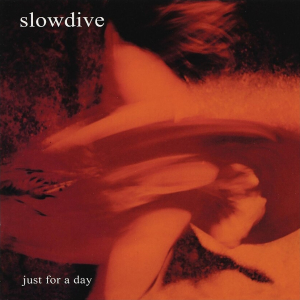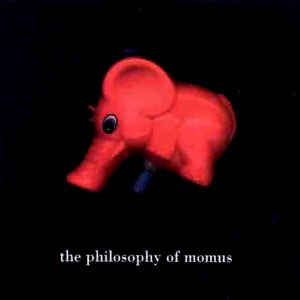
Nicholas John Currie, more popularly known under the artist name Momus, is a Scottish musician and writer.

Destroyer is the fourth studio album by American hard rock band Kiss, released on March 15, 1976, by Casablanca Records in the US. It was the third successive Kiss album to reach the top 40 in the US, as well as the first to chart in Germany and New Zealand. The album was certified gold by the RIAA on April 22, 1976, and platinum on November 11 of the same year, the first Kiss album to achieve platinum. The album marked a departure from the raw sound of the band's first three albums.

Game Theory was an American power pop band, founded in 1982 by singer/songwriter Scott Miller, combining melodic jangle pop with dense experimental production and hyperliterate lyrics. MTV described their sound as "still visceral and vital" in 2013, with records "full of sweetly psychedelic-tinged, appealingly idiosyncratic gems" that continued "influencing a new generation of indie artists." Between 1982 and 1990, Game Theory released five studio albums and two EPs, which had long been out of print until 2014, when Omnivore Recordings began a series of remastered reissues of the entire Game Theory catalog. Miller's posthumously completed Game Theory album, Supercalifragile, was released in August 2017 in a limited first pressing.

How I Learned to Love the Bootboys is the fourth and final album by British rock band the Auteurs. It was released on 5 July 1999 through Hut and Virgin Records. Following their third studio album After Murder Park (1996), Haines started the Baader Meinhof and Black Box Recorder projects. He regrouped with the Auteurs to start work on a concept album under the name ESP Kids, though sessions halted as Black Box Recorder worked on their debut album England Made Me (1998). The Auteurs re-started recording their next album in January 1998 at RAK Studios in London; Hut and Virgin were not happy with the lack of single-sounding songs. After writing "The Rubettes", the band finished recording in April 1998. How I Learned to Love the Bootboys is a glam rock album that takes atmospheric influence from England Made Me.
Cherry Red Records is a British independent record label founded in Malvern, Worcestershire by Iain McNay in 1978. The label has released recordings by Dead Kennedys, Everything but the Girl, The Monochrome Set, and Felt, among others, as well as the compilation album Pillows & Prayers. In addition to releasing new music, Cherry Red also acts as an umbrella for individual imprints and catalogue specialists.
This discography lists the key British and notable international releases of The KLF and the other pseudonyms of Bill Drummond and Jimmy Cauty. It also details the other releases on their independent record label, KLF Communications, by KLF-spinoff Disco 2000 and Space. In the United Kingdom—their home country—Drummond and Cauty released six albums and a wide array of 12 " singles on KLF Communications. In other territories their material was typically issued under licence by local labels.

"Doctorin' the Tardis" is a novelty single by the Timelords. The song is predominantly a mash-up of the Doctor Who theme music and Gary Glitter's "Rock and Roll" with sections from "Block Buster!" by The Sweet. The single was not well received by critics but was a commercial success, hitting number one on the UK and New Zealand singles charts, and reaching the top 10 in Australia, Finland, Ireland and Norway.

"Whitney Joins the JAMs" is a song and 1987 single by the Justified Ancients of Mu Mu. The song, released on the JAMs' independent label KLF Communications, is built around plagiarised samples of Whitney Houston in which—thanks to studio technology—she "joins the JAMs".

The Little Red Songbook is the twelfth studio album by Scottish musician Momus, released by Le Grand Magistery in 1998. Momus describes the album's style as part of his "analog baroque" phase: "an odd blend of classicism and kitschy futurism." The album features a number of karaoke versions of the songs that were used for a singing contest; the winners of the contest appear on the album Stars Forever.

Just for a Day is the debut studio album by English rock band Slowdive, released on 2 September 1991 by Creation Records.

The Servants were an indie band formed in 1985 in Hayes, Middlesex, England by singer-songwriter David Westlake. The band was the original home of Luke Haines.

The Poison Boyfriend is the second album by Scottish musician Momus, released in 1987 on Creation Records. After the critical success of Momus' Biblical-themed and stripped down debut album Circus Maximus (1986), Momus left él Records and signed with Creation Records after he bonded with record label boss Alan McGee. His first release for the label, The Poison Boyfriend is a song cycle that features a full band; its first half features acoustic-based singer-songwriter songs with cabaret pop influences, while the more upbeat second half features synthesisers and drum machines.

Tender Pervert is the third studio album by Scottish musician Momus, released in 1988 on Creation Records.

Hippopotamomus is the fifth studio album by British musician Momus, released in 1991 through Creation Records.

Vivid is a 2020 album by Scottish musician Momus. It was released on 14 July 2020 through independent label American Patchwork and distributed on CD by Darla Records.

Ocky Milk is the 19th studio album by Scottish musician Momus. It was released on 10 March 2006 through Momus' own label, Analog Baroque, and re-issued through independent label American Patchwork. It is currently distributed on CD by Darla Records.

Don't Stop the Night is the fourth studio album by Scottish musician Momus. It was released in 1989 through Creation Records internationally, and in Germany on Rough Trade. The album featured Momus' highest-charting single to date, "The Hairstyle of the Devil", which reached No. 94 on the UK Singles Chart for the week of 30 April 1989.

Voyager is the seventh album by Scottish musician Momus, released in 1992 by Creation Records. Voyager marked Momus' increased popularity in Japan, where he was signed to Nippon Columbia and began to collaborate with a number of notable Shibuya-kei artists.

Hypnoprism is an album by Scottish musician Momus. It was released on 27 September 2010 through independent label Analog Baroque in the United Kingdom, and in the United States by American Patchwork, distributed on CD by Darla Records.

The Philosophy of Momus is the ninth studio album by Scottish musician Momus. It was released on 1 April 1995 through Nippon Columbia in Japan, and Cherry Red Records in the United Kingdom.


















